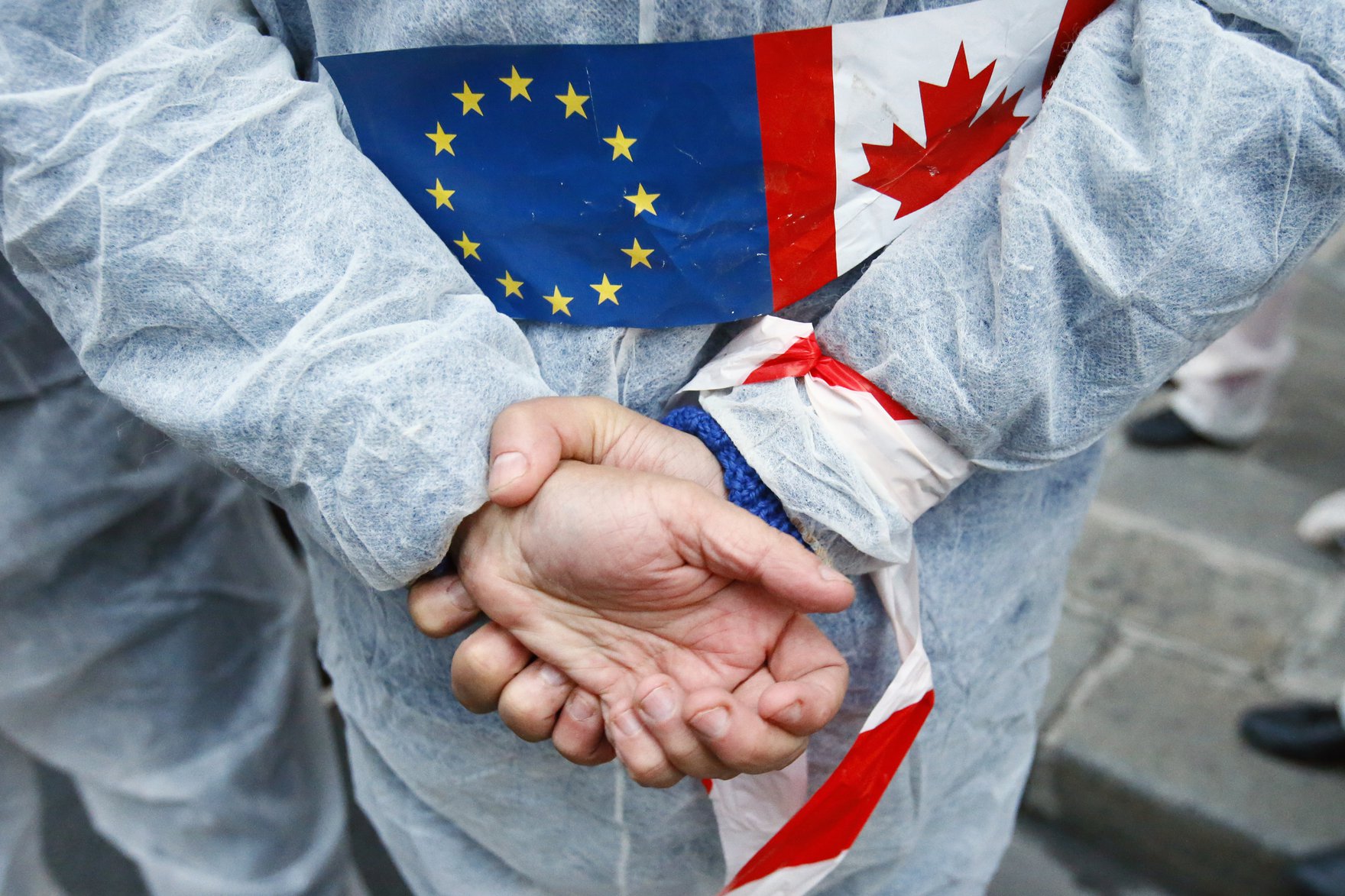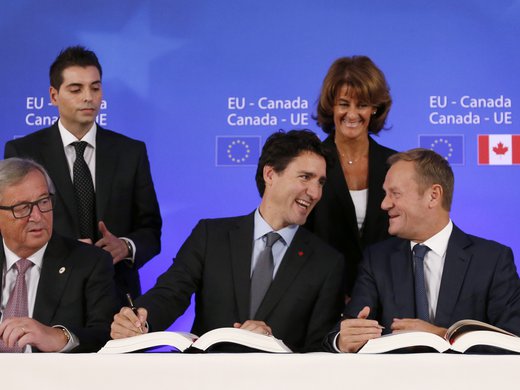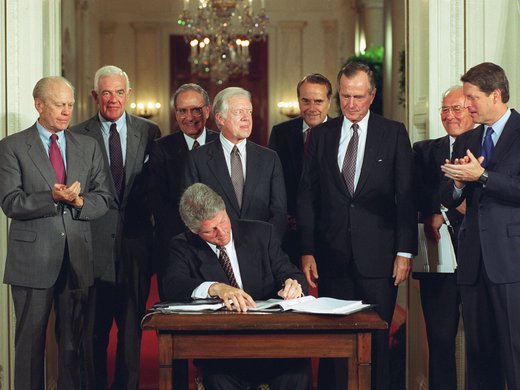Almost six months after the signing ceremony of the Canada-European Union Comprehensive Economic and Trade Agreement (CETA), the Belgian region of Wallonia is again threatening its implementation in Europe.
Wallonia’s First Minister Paul Magnette added new uncertainty to the ratification recently, stating: “We’ve said very clearly to the European Commission that we will not ratify as long as we don’t get all the aspects that we’ve asked for during the negotiations.”
Although the parallels might not seem obvious at first glance, it is illuminating to contrast tiny Wallonia’s influence on the ratification of CETA with a request by Indigenous peoples in Canada for consultation on an earlier international investment pact — a request that the country’s courts denied.
In 2013, Vancouver Island’s Hupacasath First Nation, supported by affidavits from the Union of British Columbia Indian Chiefs and Serpent River First Nation in Ontario, brought a judicial review to the Federal Court claiming that Canada’s negotiated international investment with China may adversely affect its Aboriginal rights. Prior to the ratification of this investment treaty, the First Nation wanted Canada to consult them in accordance with section 35 of Canada’s constitution and, if necessary, accommodate its concerns.
In court, Hupacasath First Nation argued that it may not be able to conserve and protect its lands in accordance with its legal customs. The First Nation took issue with the dispute settlement process in the Canada-China investment agreement, where international investment arbitrators would apply trade and investment law. The First Nation was concerned that these arbitrators would not afford the same constitutional protections for Aboriginal rights and title as Canadian domestic courts.
Hupacasath First Nation v. Minister of Foreign Affairs Canada as the first case in Canada where a court was asked to determine whether there was a constitutional obligation to consult prior to ratification of an international agreement. The Federal Court, and later the Federal Court of Appeal, determined that there was no duty on the government to consult the Hupacasath First Nation prior to ratification, as the potential adverse impacts of the international investment agreement on Aboriginal rights were found to be non-appreciable and speculative. However, the court did leave the door open that a future international agreement could trigger constitutional consultation requirements.
Wallonia, which only represents about 0.5 percent of the total population of the European Union, raised similar concerns as Hupacasath First Nation concerning the international investment provisions in CETA. Wallonia’s regional parliament feared that CETA would weaken legal, health and environmental standards and they were not in favour of using an international tribunal to hear investment disputes under CETA, rather than domestic courts. In the case of the ratification of CETA, the European Union required individual ratifications from all 28 member states, and Belgium’s constitution provided an opportunity for their subnational governments to refuse consent to ratification. As a consequence, Wallonia’s parliament was able to delay the signing process for days, and there remains uncertainty as to ratification of CETA.
Therefore, the EU granted its member states and some subnational governments the opportunity to influence decision-making on an international trade and investment agreements, due to the change in approach to the CETA ratification process. This can be contrasted to the situation in Canada, where First Nations and other Indigenous peoples in Canada have not been afforded the right to consultation, never mind accommodation of their concerns for recently signed trade and investment agreements, even though Indigenous peoples have presented similar arguments to those raised by Wallonia as to why investment agreements endanger their land rights.
It is not only in Canada where attention has been paid to the lack of participation of Indigenous peoples in the negotiation of trade and investment agreements. The Special Rapporteur on the Rights of Indigenous peoples, Victoria Tauli-Corpuz, presented two reports to the United Nations General Assembly, which outlined her belief that international investment agreements may directly violate indigenous rights. Unlike the decision of the Federal Court of Canada in Hupacasath, the Special Rapporteur’s finding was that non-discrimination and expropriation clauses in international investment agreements have the potential to undermine the protection of land rights and cultural rights, and may be a significant barrier to indigenous land claims.
An analysis of the Canadian government’s promise to implement the United Nations Declaration of the Rights of Indigenous Peoples (UNDRIP), which requires consultation on Legislative and administrative matters which impact Indigenous rights, combined with the existing protection for Aboriginal and treaty rights in the Canadian Constitution, makes it increasingly difficult to understand how Canada continues to take the position that consultation is not required for trade and investment agreements. As Canada is currently exploring the negotiation of a free trade agreement with China, as well as the renegotiation of NAFTA with the Trump administration, this is the time to develop a process for consultation on Aboriginal and treaty rights that is consistent with UNDRIP.



